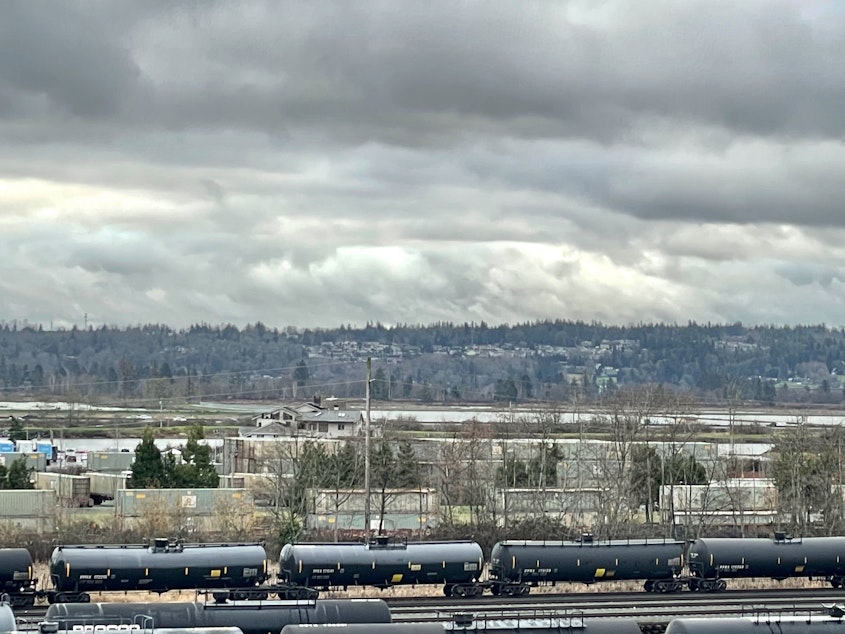Homeless man charged with derailing Tacoma oil train

Pierce County prosecutors have charged a 65-year-old homeless man with derailing an oil train as it approached the Port of Tacoma.
The mile-long train, with 105 railcars, was rolling into a switchyard Tuesday morning when it jerked to a stop as its emergency braking system kicked in.
The BNSF Railway train conductor told Tacoma Police he walked back to see what had happened and saw a man, later identified in police reports as Ramong Alcedo Frett, moving a large switching lever on the tracks back and forth.
“The conductor yelled at the defendant to stop and the defendant started to walk away,” according to the police report.
Then the conductor saw that a tanker car carrying crude oil had derailed. It stayed upright, and no oil spilled.
“There were no injuries or hazardous materials of any kind released and our main line was unaffected,” BNSF spokesperson Lena Kent said in an email.
Sponsored
Herb Krohn with the International Association of Sheet Metal, Air, Rail and Transportation Workers, the union representing BNSF engineers and conductors, said the Tacoma railyard area known as “Bullfrog Junction” often has dangerous trespassing incidents.
“There's been a lot of problems with the large number of homeless encampments in that area,” Krohn said. “There was an individual who climbed onto an engine two years ago with a machete.”
According to Pierce County charging documents, Frett has violent criminal convictions in at least three states.
Pierce County Superior Court Commissioner Craig Adams on Wednesday ordered that Frett be held without bail at Pierce County Jail and be given an examination to see if he is mentally competent to stand trial.
Frett’s public defender, attorney Steven Avila, declined to comment on the ongoing case.
Sponsored
Krohn said the rail yards, with their heavy equipment and hazardous materials, are difficult to secure and dangerous to enter.
“Cities and local governments have allowed homeless encampments basically unfettered to be set up right around rail yards and facilities,” Krohn said. “They're dangerous locations and they need oversight.”




